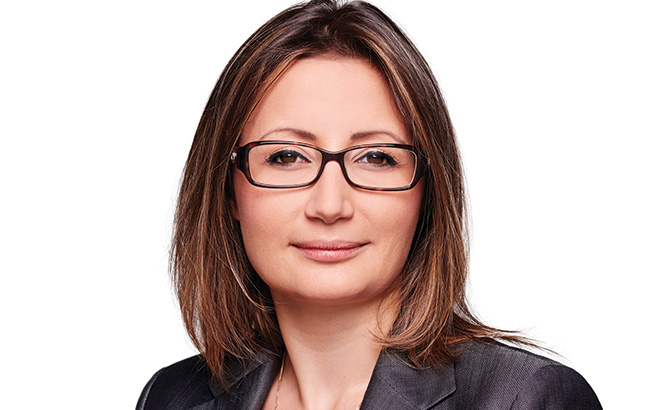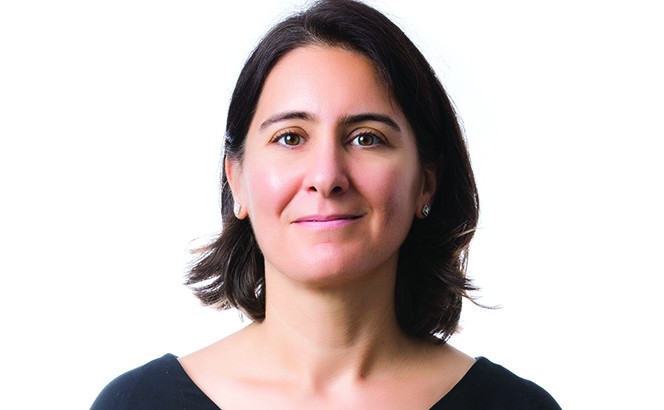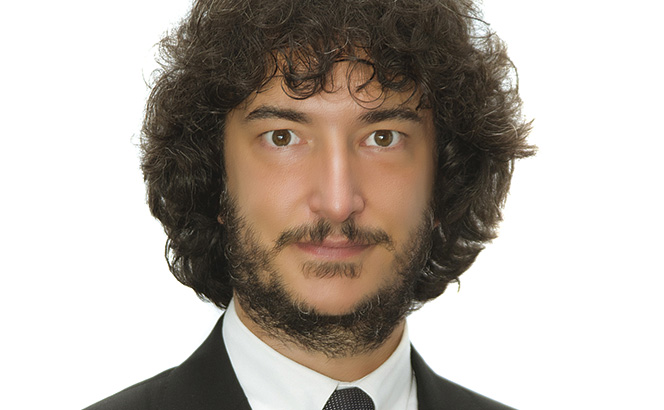A century on from Atatürk’s proclamation that the republic would be ‘happy, prosperous and victorious’, the founder of modern Turkey would today find his vision being questioned. In 2016, a failed coup left over 300 people dead. During the mass detentions that followed, nearly 2,500 judges were arrested. Within two years, Turkey’s credit bubble had burst: the lira halved in value against the US dollar, inflation hit 25% and GDP, which had been growing at 7%, flatlined.
Following the withdrawal of US troops in October 2019, the invasion of northeast Syria to create a safe zone along Turkey’s southern border led US President Donald Trump to tweet: ‘I will totally destroy and obliterate the economy of Turkey.’ In October, the House of Representatives voted by 403 to 16 to impose a series of sweeping sanctions on Turkey. But US politicians remain split, with senate majority leader Mitch McConnell warning that sanctions would cause economic damage and alienate the Turkish people. ‘It is going to be a very difficult situation for Turkey,’ notes Yasin Beceni, managing partner at Istanbul firm BTS & Partners, one of several firms that have been involved in advising Turkish clients on sanctions. ‘Because we are less familiar with the US political environment – and US firms with the Turkish legal environment – we have been in close co-operation with Covington [& Burling] in Washington,’ he says.
‘We have done a lot of work on renewables, but the high times have gone. The government has cut incentives for solar and wind.’ Orhan Yavuz Mavioğlu, ADMD
Despite the obvious trauma of recent events, domestic law firms are generally sanguine. ‘The Turkish economy is very much dependent on political circumstances,’ says Döne Yalçın, managing partner of Yalçın Babalıoğlu Boso Kemahlı. At Bezen & Partners, senior partner Yeşim Bezen concedes that the climate has fundamentally changed. ‘Three years ago, we had quite a few new investments,’ she says. ‘Activity in energy and infrastructure is still there but not at the same level. As an emerging economy, we need a lot of investment in roads, hospitals and energy, but unfortunately it is difficult for corporates, sponsors and developers to get financing in this market. Those kinds of investments have slowed down a lot.’
Feeling the strain
Turkey’s economy is highly dependent on foreign direct investment, and vulnerable, because it lacks available natural resources so has to import oil and gas. Even renewable energy is feeling the strain. ‘We have done a lot of work on renewables, but the high times have gone and it has slowed down because the government has cut some incentives, specifically for solar and wind turbines,’ says Orhan Yavuz Mavioğlu, managing partner of ADMD Law Office.
Serdar Paksoy, senior partner of Paksoy, comments: ‘Turkey is keen to bring a significant increase in its use of renewable energy in the coming years. The government is expected to announce a number of renewable energy resource zone (YEKA) tenders in the near future. These tenders should be smaller in size than the previous ones, meaning that the Turkish energy sector will offer more opportunities to a diversified group of investors.’
Pointing to ‘a multitude of issues’ facing Turkey, Timo Engelhardt, co-head of Linklaters’ Turkey practice, notes that Turkey has seen more difficult crises in the past, but refinancing has become more difficult for local companies. In addition to depressed country credit ratings from various agencies, he adds, refinancing costs and interest rates are both high while foreign exchange exposure is very difficult, particularly in US dollars. But, according to Güniz Gökçe, executive partner at White & Case, ‘every crisis creates its own opportunities’. That includes working on the major restructurings of multibillion-dollar debts in the Turkish market. ‘Debt restructuring has been extremely active and that has been an opportunity,’ she adds.

‘The government and banks are working together to develop restructuring and refinancing instruments to overcome the FX issue and protect the economy.’
Döne Yalçın, Yalçın Babalıoğlu Boso Kemahlı
Gamze Çiğdemtekin, managing partner of Çiğdemtekin Çakırca Arancı Avukatlık Ortaklığı, suggests that 2018 was ‘particularly bad – we experienced a slowdown in private consumption and investment. But things have improved because of government measures and less household demand for imports; we’ve seen export growth, especially in sectors like tourism’. Also on the upside, Fitch Ratings revised Turkey’s outlook from negative to stable in November. The inflation rate fell to 8.6% in October – its lowest level in nearly three years – although Turkey’s central bank is forecasting 12% inflation to return by January. Meanwhile, Turkey’s government has set an ambitious three-year GDP growth target of 5% per annum from 2020 onwards.
According to the treasury and finance minister, Berat Albayrak, the economy will end 2019 with positive GDP growth of 0.25%, supplemented by improving macroeconomic trends and rising economic confidence. ‘We have not seen this sort of GDP rate for the past 20 years – Turkey needs to sustain a growth rate of 5% to 6%,’ says Fethi Pekin, managing partner of Pekin & Pekin. ‘Our firm has never missed a single Eurobond issue of Turkey – more than 200 issues totalling over $100bn – and has been Turkish legal counsel to the ISDA [International Swaps and Derivatives Association] since 1998.’
In a drive to kickstart consumer growth, Turkey’s central bank has slashed benchmark rates by 7.5% since July and created incentives for banks to offer credit. Pekin takes a long-term view, noting that there was a bank run in 1995, further crises in 1998, 2001 and 2008, and another after the 2016 coup attempt. ‘It is a vicious cycle that hits the Turkish market, not because of local issues, but mainly due to international problems in the region. As a country, we are highly experienced in rebounding quickly.’
As Paksoy observes: ‘Given Turkey’s history of economic downturns followed by spectacular rebounds, some investment advisers also see the current period as offering attractive valuations for buyers with the prospect of sizeable returns when the market recovers.’
Nevertheless, the negative impact on M&A and foreign direct investment has been significant. Hopes were raised by Volkswagen (VW)’s plan to build a €1.3bn plant in Turkey, but the project was put on hold following the military offensive in Syria. Linklaters has been advising VW on the new plant. ‘VW is a sophisticated multinational: it’s not going to enter a new market unless it thinks it’s going to make money,’ says Kerem Turunç, managing partner of TURUNÇ.

‘Whereas we have had a lot of US and European interest in the past, we might get more Asian or Russian interest in future because of their risk appetite.’
Yeşim Bezen, Bezen & Partners
It is no surprise that charge-out rates have come under pressure. Some lawyers suggest that fees in the Turkish market can still go up to $550-$600 an hour. But apart from premium work, that may be wishful thinking. One senior partner of a local firm says: ‘If I were to quote for a decent M&A deal and then be paid less than $100k, then it is not really viable.’ Another comments: ‘Rates are very much lower. Turkish companies will benefit in the short term, but if this results in clients getting used to low fee levels, we will struggle. In the end, we will not be in a position to deliver quality over time.’
According to Mergermarket, Turkish M&A did manage a notable revival last year. Despite the low number of deals, there was a 40% increase in aggregate value compared to 2017: 83 deals worth €10.3bn. This total was boosted by two standout deals – the €2.7bn acquisition of Denizbank by Emirates NBD Bank and the €1.9bn acquisition of a 55% stake in Türk Telekom by Levent Yapılandırma Yönetimi (LYY). Paksoy advised Sberbank of Russia, which owns Denizbank, while Clifford Chance advised Emirates NBD. On the Türk Telekom deal, Esin Attorney Partnership (Baker McKenzie) advised LYY while the sellers instructed Allen & Overy.
‘The Turkish market is highly attractive for potential M&A transactions,’ says Yalçin. ‘The government and local banks are working together to develop restructuring and refinancing instruments to overcome the FX issue and protect the economy.’ So far, no billion-dollar deals have taken place in Turkey this year. ‘The first three quarters were slow,’ notes Resat Moral, managing partner of Moral & Partners.
Countercyclical
In difficult times, some sectors still attract attention. Internet, mobile telecoms services and technology have been the standout areas by volume with 50 and 45 deals, respectively, over the last two years. Elsewhere, financial services, food and beverage, manufacturing, infrastructure, logistics, transportation and media sectors have also seen significant M&A activity. One of the largest deals in 2019 involved Qatari investment firm Mayhoola raising its stake in Turkish luxury department store Beymen. ELIG Gürkaynak Attorneys-at-Law advised Beymen on the $405m sale. ‘Big-ticket deals are very rare at the moment,’ says the firm’s founding partner Gönenç Gürkaynak. The slowdown takes a toll on negotiations and the structuring of transactions, he adds. ‘We don’t see companies abandoning their Turkey plans entirely, because it is a tremendous market with a young population and huge potential for all kinds of business, but they tend to be conservative and take things slowly.’
Competition work remains reasonably buoyant, comprising over half of ELIG Gürkaynak’s practice. ‘One third of our merger control work comes from international law firms’ referrals,’ says Gürkaynak. ‘In competition law, advisory work is about 25%, while defence and merger control work take the remaining 75% equally.’
Looking ahead, M&A activity in major infrastructure – notably ports – is forecast by White & Case. ‘There have been some arrangers instructed for certain major assets that are going to come up in 2020,’ says Gökçe. ‘We also see some distribution assets, interestingly on the energy side, and international investors looking at electricity grids and natural gas distribution assets.’ In terms of future inbound investment, Yalçin points to manufacturing, technology, medical devices, entertainment (fast food), payment systems, energy (alternative fuels) and real estate as the areas of greatest interest.
Bezen has noted a shift in the geographic profile of investors. ‘Whereas we have had a lot of US and European interest in the past, we might get more Asian or Russian interest in future because of their risk appetite. Turkey is probably a more attractive market for Asian and CIS investors who are less risk averse.’ Yazıcı Avukatlık Ortaklığı’s founding partner, Murat Yazıcı, agrees: ‘The profile of M&A in Turkey has changed from western capital to Middle East and eastern capital – Qatar, India and China increasingly take part in Turkish M&A deals.’
In summarising the current challenges, Jonathan Blythe, partner at Senguler & Senguler, speaks for many of his Turkish counterparts: ‘It used to be that you would get M&A deals and that was great. You worked hard, earned good money and could charge good rates. Now, there are far fewer deals so we’ve had to adapt our business and develop a different long-term strategy.’ Part of that involves doing more litigation and ‘seeking to provide day-to-day business law support for a whole range of businesses.’

‘We don’t see companies abandoning their Turkey plans entirely, but they tend to be conservative and take things slowly.’
Gönenç Gürkaynak, ELIG Gürkaynak
Project and infrastructure development remain integral to the government’s long-term strategy and are a perennial source of work for the legal sector. To be funded by a $200bn decade-long investment plan, President Recep Tayyip Erdoğan made it a priority during his 2018 election campaign, promising a raft of infrastructure mega-projects to celebrate the 2023 centenary of the Turkish republic.
These include the new $12bn Istanbul Airport – at 76.5 sq km, six times the area of Heathrow. When completed in 2027, it should be the world’s busiest by some margin: six runways and four terminals will have capacity to accommodate 200 million passengers a year. However, the International Monetary Fund has sounded a note of caution, urging ‘strict selection’ on project expenditure.
‘Because these infrastructure projects are supported by the government, they are less impacted by economic problems, although they are not immune,’ says Çiğdemtekin. ‘The government is very ambitious about infrastructure and will carry on supporting them, so we will continue to see legal work coming from that space.’
White & Case has been engaged on the financing of Istanbul Airport, advising banks and other financial institutions. Also high on the government’s project list is the mile-long Yavuz Sultan Selim bridge, commonly known as the third bridge, which spans the Bosphorus and is the world’s largest in its class. The $3bn project provides an eight-lane route for the Istanbul-Izmir highway. ‘We have been focusing on the investor side with some existing infrastructure deals which are looking to refinance, like the third bridge,’ says Gökçe. ‘We are also working on a number of healthcare PPP projects, some with additional phases coming back to refinance. Because they are now operational, they are trying to see if they can attract a new business investor base, looking at potential bond issues.’
Compliance is another practice area that remains largely immune from economic difficulties. Most notable is The Turkish Data Protection Law, comparable in part to GDPR, which was introduced in 2018. Yalçin notes that it creates obligations for Turkish companies, such as preparing data privacy notices and consent forms, and registering with the Turkish data controller. In some cases, companies need to restructure their business processes to comply, which requires significant effort and investment in legal and IT services, which is good news for lawyers. Beceni adds: ‘We have a huge team doing compliance projects and providing advice on data privacy to local and multinational companies doing business in Turkey.’ BTS signed a co-operation agreement with Bird & Bird in 2014 but now operates as an independent firm.
‘It used to be that you would get M&A deals and that was great. You could charge good rates. Now, there are far fewer deals so we’ve had to develop a different strategy.’ Jonathan Blythe, Senguler & Senguler
Unshakeable optimism
To the outside observer, Turkey undoubtedly appears to be a very challenging jurisdiction – for both domestic and foreign players. The need for significant rationalisation in the number of local commercial law firms is evident in a market dominated by small partnerships comprising no more than 100 lawyers. For the market to mature, a rash of mergers would seem to be inevitable (see ‘Ripe for consolidation’). But the 30-year narrative of the Turkish legal elite endures – that despite the economy and business climate being buffeted by various headwinds, solutions are found and the country moves forward.
Bezen characterises this optimistic outlook. ‘When stability returns, then we will see M&A deals flourishing again. We are hoping that there will be a boom again in projects and M&A, and with that comes finance: you need financing for all those investments. We will become busy again – as busy as we were three years ago. It’s exciting for a lawyer to be involved in a new investment, a new business and a complicated finance deal.’
The caveat is ‘when stability returns’. For now, the Turkish legal market will have to persist with its customary resilience as one problem hits after another. LB
Click here for sponsored briefings on Turkey.
Ripe for consolidation: an oversaturated legal market
According to Human Rights Watch, 1,546 Turkish lawyers have been prosecuted over the failed 2016 coup attempt: more than 600 of them are in prison. Meanwhile, local lawyers who represent clients accused of terrorism offences have themselves become targets for prosecution and arbitrary detention. Yet none of this has prevented young graduates from entering the legal profession in droves. Quite the contrary – a record number have qualified in the past year.
One positive is that there are now many more women lawyers: in the latest available data, 42,476 in 2016 compared to 18,947 in 2006. Over the same period, the number of male lawyers increased from 38,605 to 57,985. Added to this are more than 10,000 newly-qualified lawyers. ‘We have a vast number of lawyers being manufactured by law schools. They may not be able to find sufficient work because the market is not growing at the same rate,’ says Orhan Yavuz Mavioğlu, managing partner of ADMD Law Office. Izgi Genc, a senior recruiter at Taylor Root, says: ‘There are so many lawyers, which makes it difficult for us to find the right talent for law firms.’
Turkey is certainly awash with law firms and no large players dominate the market. Gamze Çiğdemtekin, managing partner of Çiğdemtekin Çakırca Arancı Avukatlık Ortaklığı, observes that there are still a lot of family firms: ‘Couples and siblings working in the same firm, and second or third-generation lawyers who have inherited the firm from their fathers and grandfathers. It’s changing gradually towards more corporate firm structures.’
At ELIG Gürkaynak, one of Turkey’s largest firms with 90 lawyers, founding partner Gönenç Gürkaynak says: ‘In this kind of environment, you are not able to grow safely beyond a certain size – it’s too risky. You would be front-loading and too highly leveraging the operation if you were to do that.’
The Turkish legal profession still lacks sophisticated governance, according to Mehmet Gün, managing partner of Gün + Partners. ‘Firms are often 20 or 30 lawyers; those that employ more than 50 lawyers are exceptional because they struggle with growth and scale problems,’ he says. ‘Managing over 100 lawyers is almost impossible by Turkish standards.’
Kerem Turunç, managing partner of TURUNÇ, agrees. ‘Turkey probably has twice as many firms as it should for the market to be sufficiently profitable,’ he says. ‘The Turkish market is very competitive and the concept of a partnership is still a cultural enigma.’ He argues that consolidation and mergers need to happen, ‘but it’s going to take younger generations assuming management positions’.
More lawyers and less premium work have inevitably combined to create a squeeze in rates. Umit Baser, general counsel of EYG, says: ‘Law firm fees are very changeable in Turkey. Most of them do not charge by the hour.’ Jonathan Blythe, partner at Senguler & Senguler, comments: ‘It’s rare that people agree to an hourly rate. Most of the time, they want a capped fee. A blended rate of $250 per hour would be seen as relatively high, especially in the current environment.’
At Bezen & Partners, senior partner Yeşim Bezen says: ‘When you don’t get as many mandates for new investments, then prices go down and competition rises. There is a lot of splitting up among partnerships and a mushrooming of new law firms.’ Timo Engelhardt, head of Linklaters’ Turkey practice, concludes: ‘The Turkish legal market is suffering from a deterioration of fees. Rates have gone down and there will be some form of self-regulation of the local market.’
Fruits of chaos: dispute resolution in Turkey
‘Commercial disputes are on the rise,’ says Yunus Çağlar, counsel at Herdem. Most often, these are a by-product of the lira’s sharp devaluation with disputes in energy, infrastructure, technology, media and telecoms being especially prevalent. ‘Very few in-house departments employ lawyers to manage litigation internally: the process is far too time-consuming with little added value,’ says Hakan Bekiroğlu, chief legal officer of Tofas.
‘Turkish companies have suffered terribly, particularly those in foreign trade and import,’ says Döne Yalçin, managing partner of Yalçın Babalıoğlu Boso Kemahlı Law Firm in cooperation with CMS. ‘Recent economic instability has resulted in plenty of disputes work covering enforcement, employment, bankruptcy and insolvency, liquidation, company restructuring and reorganisation.’
Such disputes are increasing because of an inability to pay debts – not because of bad faith, but because the economy has turned, according to Kerem Turunç, managing partner of TURUNÇ. ‘We are usually on the other side of the table when it comes to insolvencies, bankruptcies or restructurings. Our clients unfortunately end up being the victims of their counterparties’ restructuring or insolvency situations.’
Although many law firms report an increase in disputes work, litigation in Turkey is problematic. Turkish courts are infamous for lengthy proceedings: ‘Cases continue forever,’ says Mehmet Gün, managing partner of Gün + Partners. ‘Our experience is that judges deliver the right verdict,’ says Turunç. ‘The problem is that delayed justice may not be justice at all, because you may not have three years to wait for the process to run its course.’
Yazıcı Avukatlık Ortaklığı’s founding partner, Murat Yazıcı, observes that some western investors perceive the rule of law to be a problem in Turkey. That is putting it mildly. Following the 2016 attempted coup, 40% of Turkey’s judiciary was purged. ‘They were replaced with new judges who are very young and inexperienced, which is causing a lot of problems and they are trying to find solutions,’ says Gün.
One solution is mediation. New government regulations have made mediation mandatory for employment and commercial disputes before a court case is filed. ‘It started with employment disputes in 2018 with the same system introduced in 2019 for commercial cases,’ says Jonathan Blythe, partner at Senguler & Senguler. ‘It’s had a filter effect on employment disputes: 50-60% have settled at mediation or did not go to full litigation, which has helped to reduce the caseloads and allow younger judges who are struggling to gain more experience before cases come to them.’
Nevertheless, parties in Turkish disputes generally refrain from domestic court proceedings. Beyond the factors of time and inexperienced judges, there is additional concern over their lack of independence and impartiality. Arbitration is the obvious alternative. The Istanbul Arbitration Centre, established in October 2015, provides time and cost savings, according to Bahar Daniş, senior partner of Matur & Ökten & Karayel Keßler Law Office. However, ‘Turkey is promoting its own arbitration centre, but we haven’t seen it really materialise,’ notes Linklaters partner Timo Engelhardt. ‘Turks like to go to Switzerland, so arbitration often ends up in Geneva or Zurich,’ he says.
International arbitration appears to be the only viable solution, rather than using local dispute resolution. Yeşim Bezen, senior partner of Bezen & Partners adds: ‘It’s unfair on the judges because they are put there without real training and they need to deal with a large number of cases. We are advising clients to agree to arbitration. We do a lot of institutional arbitration before the ICC or LCIA.’
But inevitably there is always some scope for optimism for those lawyers engaged in local disputes locally. ‘If Turkey gets into serious financial trouble – and right now I don’t foresee it, but if it deepens further – then litigation will increase dramatically and that’s where you start to make money,’ says Fethi Pekin, managing partner of Pekin & Pekin.







